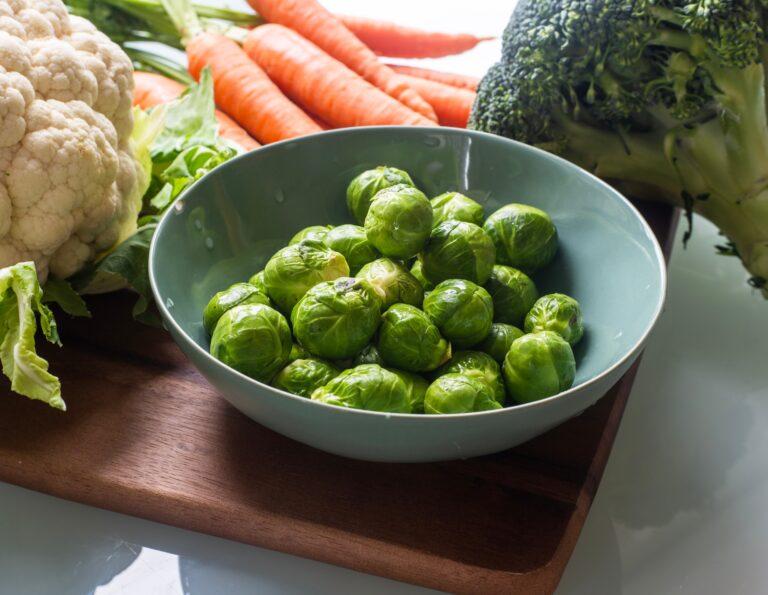My husband Noah tells me that every time he goes to the supermarket he agonizes over which eggs to buy. Are the certified humane eggs better than the certified organic? Does the fact that the eggs say cage-free mean the same as humane? If the carton says natural does that mean the same as free-range? Noah’s right, it really is confusing. So if you’ve ever stood in front of a stack of egg cartons in the supermarket and wondered what’s the best choice, this blog is for you!
Animal Care Certified/United Egg Producers Certified The overwhelming majority of the US egg industry complies with this voluntary program which sets basic guidelines for housing, feeding, and handling chickens. This does not mean that the chickens are treated in a humane way. In fact, these basic guidelines allow 67 square inches of cage space per bird (less area than a standard sheet of paper) which means that the hens cannot spread their wings let alone do things hens like to do such as forage, nest, and perch.
Vegetarian-Fed This means exactly what you would imagine. The chicken’s’ feed does not contain animal byproducts. Nutritionally these are the same as other eggs and whilst it’s better that these hens are not eating animal products the label does not necessarily mean that the birds are being kept inhumane conditions.
Natural This label claim has no relevance to animal welfare and is really more about marketing than anything else. According to the USDA, these eggs have “no artificial ingredients or added color and [are] only minimally processed,” but let’s face it most eggs don’t have anything added to them and aren’t processed so the term ends up being meaningless.
Fertile These eggs were laid by hens who lived with roosters, meaning they most likely were not caged. Though they cost more to produce (and they spoil faster), there is no real difference in these eggs, since refrigeration prevents embryos from developing.
Omega-3 Enriched This label claim has no relevance to animal welfare but the eggs may be slightly better for you because the hens are fed a special diet containing flaxseed, which is higher in Omega-3 fatty acids than other grains, yielding eggs that have a higher omega 3 content and so can benefit your heart.
Antibiotic-Free This means that the chickens laying these eggs received no drugs, however, there is no oversight for this label which means that there is no official inspection to check the veracity of these claims.
Cage-Free This means exactly what it says, although the hens might be packed just as tightly into a shed as they would be in a cage. You may read the label and imagine a free chicken roaming about a farmyard but the truth is that most cage-free chickens don’t have access to the outdoors at all. However cage-free chickens can usually engage in many of their natural behaviors such as walking, nesting, and spreading their wings. Again there is no oversight for this label which means that there is no third-party auditing to check that the chickens are cage-free.

Free-Range/Free-Roaming Many of us read this label and assume that these chickens are roaming free but this is misleading. Again there is no third-party auditing and these chickens, although given access to the outdoors, may only be outside for as little as five minutes per day. There are no restrictions on what free-range chickens can be fed and beak cutting and forced molting through starvation are permitted.
Grass-Fed From hens fed grass rather than grain, which some suppliers claim makes these eggs higher in Omega-3 fatty acids.
Certified Humane Overseen by the non-profit organization Humane Farm Animal Care, these egg producers meet specific, high standards for farm animal treatment. This means having enough space for the hens to move naturally, and there are requirements for stocking density, number of perches, and nesting boxes. Forced molting through starvation is prohibited, although beak cutting is allowed. Compliance is verified through third-party auditing.
Certified Organic The birds are not caged inside barns or warehouses. Compliance is verified through third-party auditing and certified organic chickens are required to have outdoor access, although the amount of this outdoor time is not defined. The birds are fed an organic, all-vegetarian diet free of antibiotics and pesticides.
Free-Farmed A trademark of the American Humane Association, which certifies that the hens are raised humanely, in a cage-free environment.
Animal Welfare Approved Supervised by the Animal Welfare Institute this program has the highest animal welfare standards of any third-party auditing program. Which would be all well and good except that there are no participating producers that sell to supermarkets. I can get these eggs in my health food store though. The birds must be cage-free and allowed continuous access to the outdoors. They must be able to perform natural behaviors such as nesting and perching. There are requirements for stocking density, perching, space, and nesting boxes. Birds must be allowed to molt naturally. Beak cutting is prohibited.
So what’s the verdict?
Most eggs have the same nutritional content but I feel strongly that what’s good for the chickens is good for us too. So healthy, happy chickens undoubtedly produce healthy, nutritious eggs. Chinese medicine teaches that all food has energy (qi) that is based on how it was produced.
If you have access to the Animal Welfare Approved eggs I would choose them and if not I would go with Free Farmed followed by either Certified Organic or Certified Humane. Often eggs have a number of labels which, although confusing, may make them a better bet. So if a package says the eggs are cage-free, vegetarian, anti-biotic free and grass-fed that egg may be as good a choice as one labeled free -farmed.
A final note
You may be wondering what the mysterious code on your egg carton means. It simply shows the date and place where the eggs were packed. The three-digit code on the left gives the packing date, numbered according to the 365 days of the year and the code on the right beginning with a “P” is the USDA-assigned number denoting which plant the eggs were packed at.
Often you’ll also see another date on egg packaging. If it’s preceded by the words “EXP,” “Sell By,” or “Not to be sold after,” the date is at most 30 days after packing. However, if it says “Use by,” “Use before,” or “Best before,” the date might be as much as 45 days after packing.






